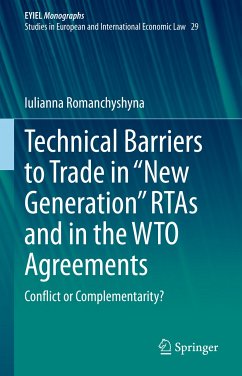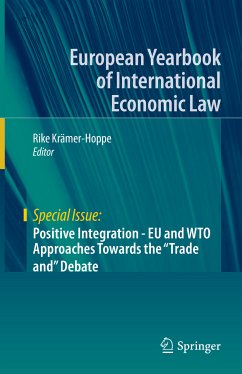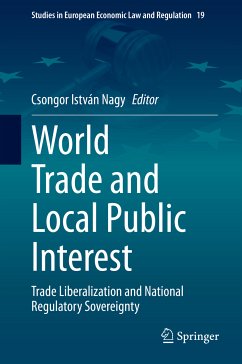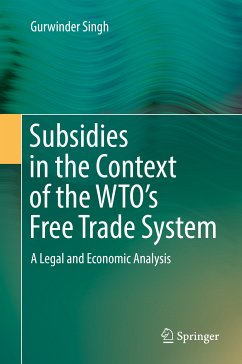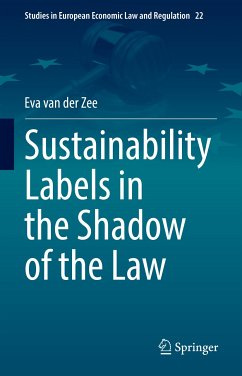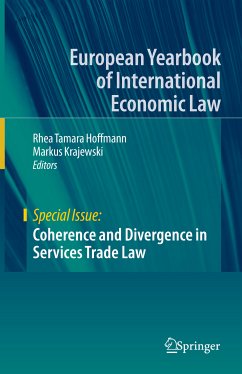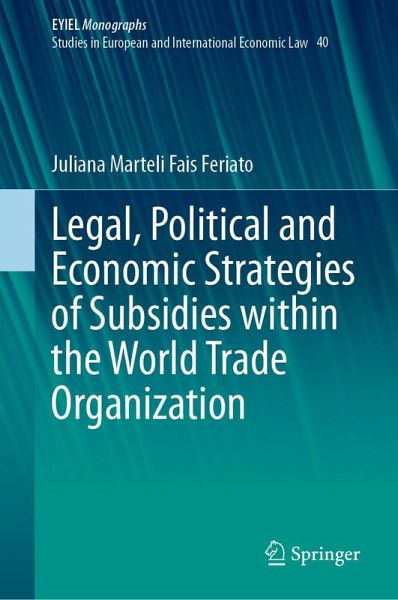
Legal, Political and Economic Strategies of Subsidies within the World Trade Organization (eBook, PDF)
Versandkostenfrei!
Sofort per Download lieferbar
112,95 €
inkl. MwSt.
Weitere Ausgaben:

PAYBACK Punkte
56 °P sammeln!
From the Law and Economics perspective, the book reveals the gaps of the trade multilateral system that allows governments to draw upon subsidies strategies according to their unilateral interests. The book suggests that failures in WTO mechanisms has become great challenge for the multilateral system to restrain trade diversion. Due to their character as public expenditures, since they are granted by governments through tax incentives or direct financial investment, granting subsidies are directly linked to the economic power of the countries. For this reason, some subsidies constitute a seri...
From the Law and Economics perspective, the book reveals the gaps of the trade multilateral system that allows governments to draw upon subsidies strategies according to their unilateral interests. The book suggests that failures in WTO mechanisms has become great challenge for the multilateral system to restrain trade diversion. Due to their character as public expenditures, since they are granted by governments through tax incentives or direct financial investment, granting subsidies are directly linked to the economic power of the countries. For this reason, some subsidies constitute a serious unfair trade practice that needs to be fought multilaterally, depending on global cooperation so that all countries can have access to international trade. Poor countries are severely affected by theses practices, meanwhile, not all developing countries are impacted the same way because there are considerable levels of development. Based on this, the book proposes a preventive mechanism to discourage subterfuge and opportunism of rich countries, in search of efficiency. In order to do so, firstly, it will be addressed the economic theories that underlie free trade, and the subsidies influence over international economy. Next, the Law and Economics approach will be presented, by which the problematic economic and political subsidy strategies of member countries will be analyzed. Based on these premises, the book shows how subsidies and countervailing measures are regulated within the WTO and it points out the failures of the WTO mechanisms to combat specific subsidies, which accentuate the differences between rich and poor countries. Finally, the book proposes preventive measures to hinder harmful effects of subsidies from materializing.
Dieser Download kann aus rechtlichen Gründen nur mit Rechnungsadresse in A, B, BG, CY, CZ, D, DK, EW, E, FIN, F, GR, HR, H, IRL, I, LT, L, LR, M, NL, PL, P, R, S, SLO, SK ausgeliefert werden.





